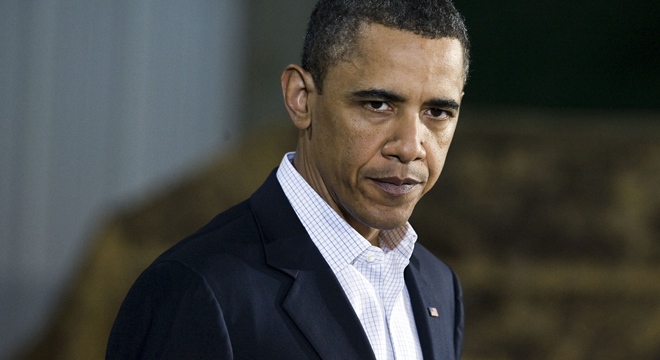In an encyclopedic new book that sheds fresh light on the defining fight of President Obama’s first term, one of the administration’s key health care reform allies recalls a thin-skinned, “weak-kneed” White House, strategically unwilling and temperamentally unable to face criticism from progressive reformers, whose toughest tactics were reserved for its natural allies.
Many of the revelations will be unsurprising to those who followed the year-long fight over health care reform closely. But they serve as a thorough reminder of the administration’s uneven strategy during the debate, including its horsetrading with private industry, and private dealing with supporters on the left — particularly those, like the author, who fought a bruising fight for a public health insurance option and lost.
The book is Fighting For Our Health, by Richard Kirsch, who directed the advocacy group Health Care for America Now during the push for reform. HCAN is a well financed umbrella group backed by scores of liberal groups, unions, and other reformers — making Kirsch a close witness to the entire saga. He confirms that the White House treated the public option like a bargaining chip with powerful industry players, and believes that when his group became most critical of the bill mid-way through the fight, that top White House aides sought to have him canned.
“The White House had negotiated a number of deals with the health industry, designed to win their support for reform, including agreeing to oppose a robust public option, which would have the greatest clout to control how much providers got paid,” writes Kirsch, largely confirming what has become an open secret in Washington.
Kirsch’s book is replete with similar stories. Thematically, it centers on contradictions within the Democratic party, and Obama himself, that gave rise to the infighting that marked the debate. To keep factions from spinning apart, Kirsch suggests, the administration was averse from the outset to the idea that progressives and sympathetic stakeholders should play an outside game, pressuring the President and problem Democrats in Congress to pass robust reforms.
That tension was clear to reporters, many of whom received first-hand accounts of private, angry meetings between White House officials and outside advocates. Yet despite the fact that HCAN was generally more compliant with the administration than other less-influential groups, Kirsch reports that some in the White House were incensed enough when he stepped out of line that they sought reprisals — and may have tried to have him fired.
Kirsch singles out Obama’s then-Deputy Chief of Staff Jim Messina, who now manages Obama’s re-election campaign. After HCAN criticized an early version of the health care law, drafted by Senate Finance Committee Chairman Max Baucus, Kirsch writes, “I got a call from a member of the HCAN Steering Committee. The message was brief: Someone at the White House had called [the Service Employees International Union] and asked that I be fired.” Kirsch suggests in the book that it was Messina who tried to have him fired, but was never was able to directly confirm this. Still, Kirsch describes a tense relationship with Messina, and between Messina and other reform advocates.
Messina did not respond to a request for comment Tuesday night.
“Messina took a tone that clearly discouraged dissent,” Kirsch writes. “I did find out that the White House had complained about me to SEIU [and] that Messina had also complained about me to Chuck Loveless, who was [the American Federation of State, County, and Municipal Employee’s] legislative director.”
Kirsch adds, “A friend of mine in Congress told me that I had earned the White House’s animosity because they thought I had lied about HCAN’s role when I said that we were building an army to help the President pass his plan. The White House believed that I was promising that HCAN would be like Organizing for America, doing whatever the White House wanted.”
This strategic aversion to outside pressure from the left has defined Obama’s legislative victories and failures. And as House Republicans are now discovering, there’s some advantages to that kind of arrangement — too much outside pull can leave a party extremely divided. But by keeping dissenting forces on the left marginalized, the White House had little negotiating power with Republicans in the early days and later, when the GOP fully abandoned health care reform, or with the conservative Democrats who watered it down.
“In one oft-quoted story, President Franklin Roosevelt met with the leading progressive groups of his day and after hearing their agenda said, ‘I agree with you. Now make me do it.’,” Kirsch writes. “But that was not the stance taken by the Obama White House. A White House insider told me that when he asked Messina what the ‘inside/outside strategy’ was for passing health care reform, he replied, ‘There is no outside strategy.'”






